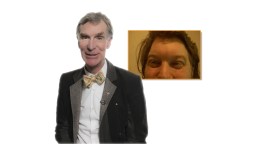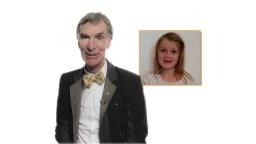Videos
All Stories
Dr. Nichole Foubister gives a crash course on bipolar disorder and offers hope for the future of treating this difficult mental illness.
▸
4 min
—
with
We’re better at teaching robots to reason than we are at getting them to perceive. That’s good for human laborers in industries that value the latter.
▸
3 min
—
with
Science and art are complementary disciplines, according to Nobel Prize-winning physicist Frank Wilczek. Together they allow us to explore whether the world embodies beautiful ideas.
▸
4 min
—
with
Theoretical physicist Lawrence Krauss explains his main gripe with organized religion: “It implies things about the real world that are just not true.”
▸
7 min
—
with
Big Think’s chief economist discusses the fledgling Chinese shadow banking system that national leaders want to regularize.
▸
1 min
—
with
Author and entrepreneur Jerry Kaplan offers an interesting crash course on computational ethics, the idea that robots and machines will require programming to make them cognizant of morals, decorum, manners, and various other social nuances.
▸
11 min
—
with
Bill Nye is an engineer by trade, so you know his answer to this one is going to be good. Learn how the rudder of a Boeing 747 can potentially inspire an inventor to develop a better brand of prosthetics.
▸
4 min
—
with
Stereotypes have consequences, especially when they’re reinforced by loudmouths like Donald Trump.
▸
3 min
—
with
Neuroscientist Wendy Suzuki chats about testing out her current hypothesis.
▸
3 min
—
with
Dr. Michael Lindsey of NYU’s Silver School of Social Work shares his views on the state of mental health within the African-American community.
▸
6 min
—
with
Every time there’s a new technology, criminals immediately take advantage of it, explains Steven Kotler. It’s only a matter of time before they find new, nefarious uses for 3D printing and synthetic biology.
▸
4 min
—
with
Geoffrey Kent is a pioneer of the photographic safari. His motto: Shoot with a camera, not a gun. After all, we can’t afford to keep killing endangered animals.
▸
4 min
—
with
Behavioral economists see humanity as a giant irrational mass. Yet that doesn’t mean they’re innate pessimists. Rather, they see a giant blank canvas on which masterpieces can be built.
▸
2 min
—
with
Companies like Amazon take advantage of the fact that they know a whole lot more about buying patterns than you do. As author and entrepreneur Jerry Kaplan explains, this sort of information asymmetry is the real crux of their business plan.
▸
4 min
—
with
And now for something totally different…
▸
4 min
—
with
What’s the best way to help someone with PTSD? Understand it.
▸
7 min
—
with
The actor and activist dishes on same-sex marriage and the historical precedent for granting additional freedoms to the oppressed and disenfranchised.
▸
2 min
—
with
Science needs to be about discovery, not rote memorization.
▸
2 min
—
with
Dr. Dan-el Padilla Peralta, a former undocumented immigrant himself, argues that Trump’s acolytes need to take a look into their own ancestral mirror before passing judgement on America’s immigrants.
▸
3 min
—
with
Don’t sell out, says designer Tina Roth Eisenberg. If somebody wants to give you money in exchange for eyeballs, just make sure that it adds value to whoever is reading your site.
▸
3 min
—
with
Mentalists rely on the power of suggestion to glean information from audience members. Thus, keen communication skills are essential.
▸
2 min
—
with
It’s Tuesday, which means we’ve got another submitted question for Bill Nye to answer. The topic this week is the same as last week: black holes.
▸
5 min
—
with
Leadership is accessible to each of us—today. It requires a process of hard work, willingness to ask questions, and openness to learning.
▸
2 min
—
with
Leadership is accessible to each of us—today. It requires a process of hard work, willingness to ask questions, and openness to learning.
▸
2 min
—
with
Leadership is accessible to each of us—today. It requires a process of hard work, willingness to ask questions, and openness to learning.
▸
2 min
—
with
Leadership is accessible to each of us—today. It requires a process of hard work, willingness to ask questions, and openness to learning.
▸
3 min
—
with
Leadership is accessible to each of us—today. It requires a process of hard work, willingness to ask questions, and openness to learning.
▸
2 min
—
with
Leadership is accessible to each of us—today. It requires a process of hard work, willingness to ask questions, and openness to learning.
▸
3 min
—
with
Contrary to popular belief, leadership really can be learned.
▸
1 min
—
with
Does the typical college student understand the sort of mental health care options available to them? Dr. Judith Brisman of Eating Disorder Resource Center continues our series “Big Thinkers on Mental Health.”
▸
5 min
—
with





























